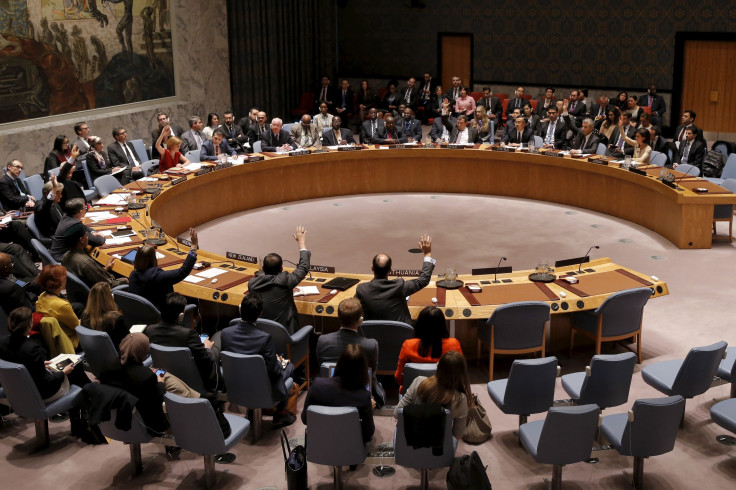After North Korea Violated United Nations Nuclear Resolutions, What Can The Security Council Do?

The United Nations Security Council called for an emergency meeting Wednesday following reports that the reclusive nation of North Korea had allegedly successfully tested a hydrogen bomb. The U.N. has levied sanctions and passed multiple resolutions for more than a decade against North Korea’s aggressive pursuit of a nuclear weapons program that the country has continued to ignore.
“While we cannot confirm at this time that a test was carried out, we condemn any violation of UNSC [U.N. Security Council] Resolutions and again call on North Korea to abide by its international obligations and commitments,” said Hagar Chemali, a spokeswoman for the American mission, speaking with Reuters.
The U.S. and Japan called for the Security Council meeting and an anonymous source told Reuters the meeting was likely to be held behind closed doors as members debate how to move forward. U.N. Secretary General Ban Ki-moon called for North Korea to cease "any further nuclear activities" Wednesday prior to the Security Council meeting.
North Korea has a long history of going against international treaties and agreements on nuclear policies as the U.N. has continued to levy resolutions and sanctions to persuade the country’s leader, Kim Jong Un, to give up his nuclear ambitions. In 1985, the so-called “hermit kingdom” agreed to the Nonproliferation Treaty only to withdraw in 2003 after dismissing international inspectors amid allegations from the U.S. that North Korea was working to enrich uranium.
North Korea has sent mixed messages on its nuclear program and possible negotiations for years. The U.S. has applied its own sanctions against North Korea while other states have worked through the Security Council. Sanctions have targeted many areas ranging from arms embargoes to luxury goods in an effort to cripple North Korea’s abilities.
The Security Council adopted the first in several resolutions targeting North Korea in April 2004. Resolution 1540 argued that proliferation threatens international peace and security and laid the foundation for the council to apply sanctions, including an import embargo on missile parts in 2006 with Resolution 1695.
Experts have long called into question the effectiveness of resolutions in dissuading North Korea from pursuing its nuclear program in what has become a tit-for-tat pattern with more resolutions created in response to North Korean actions.
Following an nuclear underground test in October 2006, the U.N. imposed more sanctions with Resolution 1718. Another round of sanctions came in 2009 and more in 2013 that China’s envoy describing them as being “not for the sake of sanctions. The top priority is to defuse the tension, bring down the heat, focus on [the] diplomatic track.”
While the Security Council may agree to another resolution Wednesday increasing sanctions against North Korea even further, members of the U.N., including permanent members of the Security Council – the U.S., U.K. France, Russia and China – have themselves gone against resolutions in the past, calling into question their effectiveness in deterring nations from pursuing weapons and security aims.
© Copyright IBTimes 2024. All rights reserved.





















